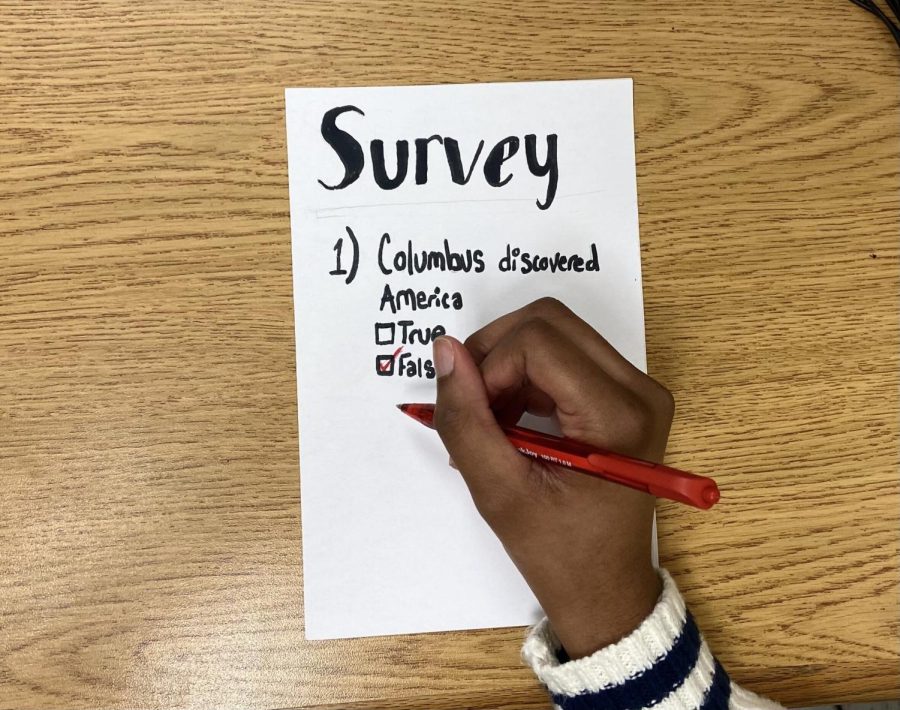The evolution of Indigenous Peoples’ Day
Now that a multitude of Americans recognizes the significance of Indigenous peoples’ Day, they utilize this holiday as a reflection of our history in the United States, the role Native people played in it, and the impacts that history had on native people and communities. Citizens should also use this as a day to gain an understanding of the diversity of Indigenous peoples.
October 18, 2021
Columbus Day, a national holiday that acknowledges Columbus’ founding of America, has caused controversy among countless individuals. Schools across the country teach students at a young and impressionable age that Italian explorer Christopher Columbus independently discovered America, therefore receiving an immense amount of praise from schools. Traditionally, Americans see Christopher Columbus as a hero because of his role as an explorer, facing harsh conditions and the unknown as he made his voyage to America.
In reality, Columbus essentially stole land from indigenous people, who suffered tremendously from Columbus’ wrongdoings. Columbus and his men enslaved many of these native people and treated them with extreme violence and brutality, while he forced them to work for the sake of profits. As historians conduct research and citizens become aware of America’s legitimate history, Americans antagonize Columbus.
“I think we as Americans are making progress when it comes to the inclusivity of certain people in this country, but at the same time, there’s still a lot of the same discrimination occurring, so things are happening pretty slow. I think schools can encourage this inclusivity by offering classes about specific minorities. For example, a portion of pre- American history taught by an indigenous person, or an African American studies class taught by a black person”, NC junior Belcy Emerson said.
According to the Wall Street Street Journal, President Joe Biden issued a proclamation naming October 11th Indigenous Peoples’ Day to replace Columbus Day. Advocates for Indigenous Peoples’ Day believe the acknowledgment corrects a “whitewashed” American history that glorifies Christopher Columbus who perpetrated violence against Indigenous peoples. Boston, Arizona, Oregon, Texas, Louisiana, Washington DC and several other states dedicate another Monday in October to Indigenous Peoples’ Day.
“We must never forget the centuries-long campaign of violence, displacement, assimilation, and terror wrought upon Native communities and Tribal Nations throughout our country,” President Biden said.
Biden firmly believes that the federal system systematically assimilated and displaced native peoples and eradicated their culture over the years. Additionally, the system does not usually offer people of Native American descent reparations for the tragic past of their descendants.
“As a person of Lumbee [the tribe] descent, I think indigenous people are finally getting recognition and respect. It should be a day to acknowledge Native culture and recognize land taken from indigenous people, which they are unfortunately still in court to get money for to this day”, H.T. Gardner said.
As a result of Columbus’ controversial acts, a minimal Indigenous population remains in America today due to the number of lives lost. However, they still make colossal efforts to recognize this momentous day in history. As stated by National Public Radio ( NPR), the idea of Indigenous Peoples’ Day came to action when a conference held to address prejudice against Native Americans took place in 1977. Now that the holiday has come to life, it heavily values reflection, recognition, celebration and education.







